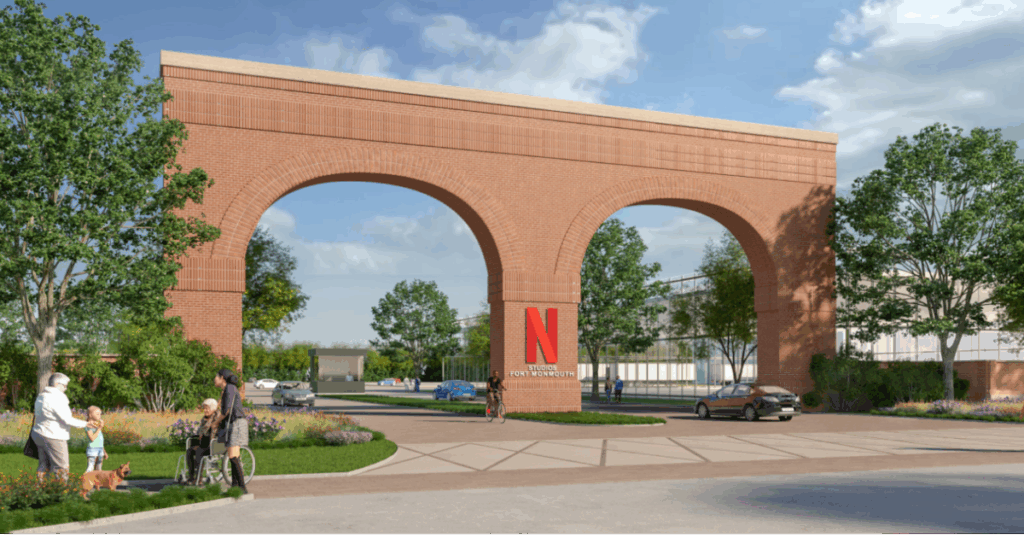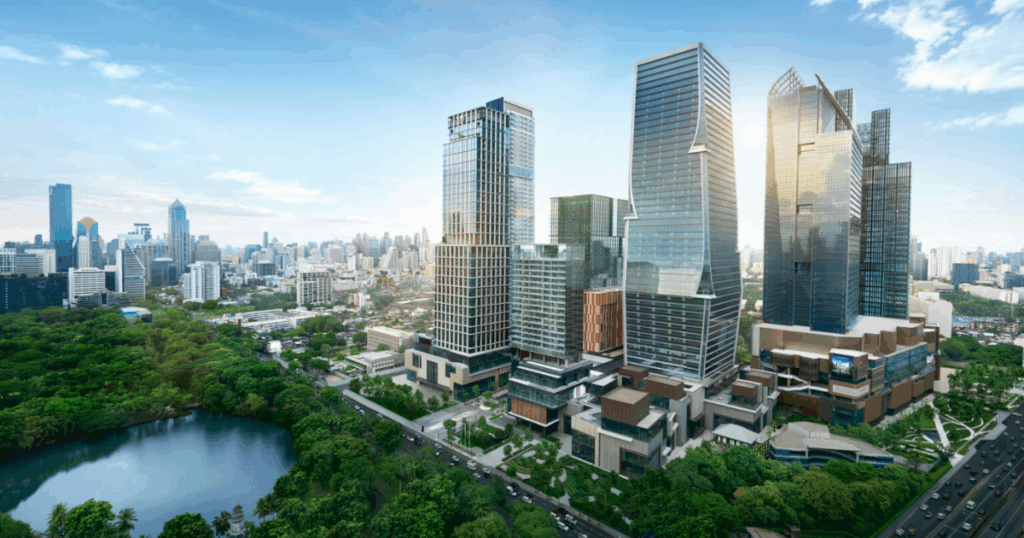Here’s our latest newsletter about the epic builds, innovations and trends shaping our urban world.
You Should Know
- For the first time since at least 2000, the U.S. this year is projected to lose more office space through demolitions and conversions—over 23 million square feet—than it gains from new construction.
- In the first five months of 2025, U.S. power producers increased total electricity output by 2% compared to the same period in 2024, reaching a new record of 69.3 million megawatt-hours, as reported by Reuters. Solar power generation and coal-fired production saw significant increases.
- Meta saved a nuclear power plant from shutdown by signing a multi-billion-dollar, 20-year power purchase agreement with Constellation Energy to secure the full 1,121-megawatt output of the Clinton Clean Energy Center.
Worth Watching
- Exploring hyperloop – the future of renewable public transport?
- See how concrete mixer trucks work.
- The Guggenheim Abu Dhabi is spectacular and coming in 2025.
Top Stories

As Lights Dim in L.A., Hollywood Goes East
In pursuit of tax incentives and modern infrastructure, major studios are rapidly shifting the construction of new TV and film production facilities to the U.S. East Coast and the UK. Once the undisputed capital of entertainment production, Los Angeles is now experiencing a significant downturn. In fact, 2024 marked the second-lowest year for filming in L.A. in decades—surpassed only by the pandemic-affected 2020. As Hollywood shifts its center of gravity, the geography of content creation is being fundamentally reshaped.
Netflix is a key player in this geographic shift. Last month, the streaming giant broke ground on a $903 million production campus at Fort Monmouth, New Jersey. The ambitious project will transform a 292-acre former U.S. Army base into one of the largest film and TV hubs on the East Coast. The site will be developed in phases and include 12 soundstages, production support buildings, post-production facilities, office space, and on-site amenities. The project is expected to generate more than 3,500 construction jobs and up to 1,500 permanent jobs, serving as a cornerstone of Netflix’s long-term U.S. production strategy.
Meanwhile, Warner Bros. Discovery is making a bold investment in the UK. The studio is spending $1.3 billion to expand Warner Bros. Studios Leavesden in Hertfordshire, with new facilities tailored to support marquee projects like the upcoming Harry Potter TV series. A self-contained “mini-city” will rise on-site, complete with roads, hangars, and a school for young cast members. Beyond the wizarding world, the expansion includes 10 new soundstages and 400,000 square feet of additional production space by 2027—boosting capacity by more than 50%. Leavesden is also set to become the global headquarters for DC Studios.
In New York City, construction is underway on Sunset Pier 94 Studios in Manhattan’s Hell’s Kitchen—a $350 million facility with six soundstages, production offices, and public amenities, scheduled to open in 2026. In Queens, East End Studios is developing a $275 million campus featuring three ground-floor soundstages totaling 75,000 square feet, along with 125,000 square feet of production and office space. The site is expected to be fully operational in 2025.
Across the river in Bayonne, New Jersey, the proposed $1 billion 1888 Studios aims to become the largest purpose-built movie studio complex in North America. The 70-acre development will span 1.5 million square feet and include 19 buildings. Just a few miles away, Lionsgate Newark Studios is under construction. This 350,000-square-foot facility will house five soundstages and is projected to generate up to 600 jobs and deliver $800 million in economic impact.
This Region is the Data Center Capital of the World
Northern Virginia has the highest concentration of data centers anywhere in the world. Approximately 70% of global internet traffic flows through the region, making it the most critical node in the world’s digital infrastructure. Virginia is home to 576 data centers, according to DataCenterMap.com, with the vast majority located in Loudoun County—the heart of what’s often called “Data Center Alley.”
Northern Virginia’s rise as a data center powerhouse stems from proactive economic policy. Decades ago, Loudoun County introduced favorable tax and business incentives specifically designed to attract data processing firms. Its strategic location—near Washington, D.C.’s federal institutions and within reach of New York’s financial markets—further enhanced its appeal. Fiber-optic infrastructure laid during the early internet boom gave the region a crucial early advantage that has since snowballed into dominance.
Today, major tech giants continue to invest heavily in the area. Amazon Web Services (AWS) maintains a large and growing presence, with plans to invest $35 billion by 2040 to expand its operations in Virginia. Google, which has two data centers in Loudoun County and one in Prince William County, committed last year to invest $1 billion to expand those campuses. Microsoft is also building two data centers in Prince William County, with another under construction in Manassas.
However, this growth brings steep energy and water demands. According to the Joint Legislative Audit and Review Commission, data centers in Northern Virginia require around 4 gigawatts (GW) of electricity—enough to power about 3 million homes annually. Dominion Energy, the region’s primary utility, is struggling to keep pace. In 2024 alone, Dominion connected 15 new data centers, adding nearly 1 GW of capacity, and expects to connect another 15 in 2025. Water usage is also a growing concern, as cooling systems consume millions of gallons daily, prompting calls for more efficient and sustainable designs.
While Northern Virginia remains dominant, other U.S. regions are emerging as secondary hubs. Dallas–Fort Worth, Iowa, and Phoenix are attracting increasing data center development. Google, for example, recently pledged $7 billion to expand its footprint in Iowa. These regions help provide redundancy and distribute traffic loads, but they have yet to match the scale or density of Northern Virginia’s data center ecosystem.
Historic Direct Asia-Africa Bridge Set for Construction
The first bridge that directly connects Asia and Africa across a body of water is set to begin construction. Initially proposed by Saudi Arabia’s King Salman in 2016, the $4 billion project has now completed its planning phase, according to Egyptian Transport Minister Kamel al-Wazir. The bridge will link Sharm El-Sheikh in Egypt with Ras Hamid in Saudi Arabia across the Red Sea’s Strait of Tiran. Commonly referred to as the “Moses Bridge” for its proximity to the biblical crossing, the structure is designed to boost trade, tourism, and logistics between the two nations.
Road travel between the two continents is already possible. However, the connection lies entirely within Egypt, where the Sinai Peninsula is part of Asia and the rest of the country is in Africa. Bridges and tunnels across the Suez Canal enable this link. While they allow transcontinental travel, they do not cross international borders like a traditional intercontinental bridge would.
The bridge is expected to serve more than a million passengers annually, particularly religious pilgrims traveling to Mecca. It will also complement Saudi Arabia’s $500 billion NEOM megacity initiative by improving regional infrastructure and economic integration. The route may accommodate both vehicular and rail transport, although final technical specifications remain undisclosed.
Currently, the Arab Bridge Maritime Company operates 13 vessels across the same corridor. The new fixed link is anticipated to significantly increase capacity and efficiency, while creating thousands of jobs on both sides of the Red Sea. Though the concept dates back to 1988, this marks the first time the project has reached a construction-ready phase—signaling a major milestone in cross-continental connectivity and regional development.

One Bangkok Reshapes Thailand’s Urban Landscape
Thailand’s largest and most ambitious mixed-use development, One Bangkok, represents a transformative $4 billion investment in the heart of the capital. Spanning approximately 17 hectares, the project is envisioned as a fully integrated urban district designed to accommodate a working and residential population of 60,000, along with up to 200,000 daily visitors.
The master plan includes five Grade-A office towers ranging from 40 to 92 stories, five luxury and lifestyle hotels, and three interconnected retail precincts: Parade, The Storeys, and Post 1928. Among the most anticipated elements is the Signature Tower, a 92-story skyscraper projected to reach 436 meters (1,430 feet), making it the tallest building in both Bangkok and Thailand upon completion. The hotel lineup will feature Bangkok’s first Ritz-Carlton and Andaz properties. In line with global urban trends, more than 50% of the land is allocated to green and open spaces, reinforcing the project’s commitment to sustainability and enhancing quality of life for residents and visitors alike.
The project is being delivered in phases, with a grand opening held in late 2024. As of now, three office towers—One Bangkok Towers 3, 4, and 5—are operational, along with two of the three planned retail precincts: The Parade and The Storeys, offering a dynamic mix of shopping, dining, and entertainment. Construction of the Signature Tower is still in the planning stages. and additional office towers, hotels, and residential components are slated for completion by 2030.
One Bangkok places sustainability and smart city design at the forefront of its development strategy. It is the first project in Thailand to earn LEED Platinum certification for Neighborhood Development. Additionally, it has achieved double Platinum certifications from WiredScore and SmartScore, reflecting advanced digital infrastructure and a strong commitment to environmentally responsible urban design.
The project is being developed by Frasers Property, a subsidiary of TCC Assets, under Thailand’s influential TCC Group. Frasers Property is a Thai-Singaporean multinational with a global portfolio in real estate development and property management. The company is owned by Charoen Sirivadhanabhakdi, one of Thailand’s most prominent billionaire business magnates.
Big Deals
- Brookfield sells Los Angeles tower for $210 million in year’s biggest deal.
- Harbor Group acquires 11 multifamily properties for $625 million.
- Enlight raises $310 million funding for Spain’s largest hybrid power plant.
- Cinnaire secures $340M for affordable housing across multiple states.
- European Energy secures €145 million war chest.
- Aerones raises $62 million to enhance wind turbine maintenance tech.
- Obvio obtains $22 million to enhance AI traffic safety solutions.
Extra Reads
- Amazon to invest $10 billion in North Carolina data centers.
- Chongqing showcases innovative, complex vertical urban planning strategies.
- Waymo’s robotaxis are now driving with more humanlike confidence.
- BYD launching Europe’s first megawatt EV charging network.
- India urged to adopt Zurich’s rainwater-friendly urban pavements.
- NJ plant turns food waste into renewable natural gas.
- CoreWeave leases 250 MW data center capacity for $7 billion.
- World Bank allocates $200M for urban climate-resilient infrastructure in Cameroon.
- New housing doesn’t have to create new traffic.
- Waymo surpasses Lyft in San Francisco’s ride-hailing market.
- Top 10 African countries making the most progress in infrastructure development.
- New robot lawn mowers use self-driving car tech to navigate.